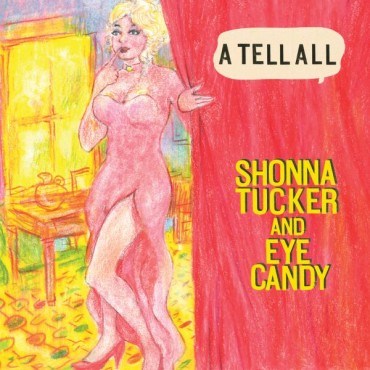The Drive-By Truckers/The Complete Dirty South/New West
Four Out of Five Stars
Videos by American Songwriter
The fifth album from the Drive-By Truckers, The Dirty South, marked a major turning point for the Alabama-based band. A concept album entirely, it followed up on the theme established by an earlier release, Southern Rock Opera, delivering a blistering commentary on the tragedies, turmoil, and sheer hypocrisy that the band considered inherent in the trappings and trajectory of the deep South.
Originally released in 2004, it caught the attention of the critics while solidifying their stance as an insurgent outfit, one that paid no heed to any reverence and respect generally given a glorified southern tradition. It also became their best-selling album to date.
Still, the band spared no effort when it came to describing the region’s failures, desperation, and despair. The rowdy and rambunctious “Where The Devil Don’t Stay” set the tone, a rugged vocal underscoring an over-abundance of edge and attitude. “Tornados” is slow and considered, inspired by an eyewitness account of a storm that sounded like train barreling down the tracks. “Puttin’ People on the Moon” delivers a solid stomp while recounting the adverse economic and environmental effects imposed on an Alabama town immediately downriver from the Marshall Space Flight Center. Likewise, The gruff and gritty “The Sands Of Iwo Jima” contrasts the realities of war with the glorified John Wayne film of the same name.

So too, the edgy “Daddy’s Cup” reflects a southerner’s love of auto racing, while “Never Gonna Change” pays homage to a son of the South who sticks by his guns and, in the process, manages to live fearlessly — Strong like people from South Alabama and mean like the people from here… We ain’t never gonna change, So shut your mouth and play along.
Despite the otherwise sobering set-up, certain songs offered praise to certain southern icons. “The Day John Henry Died” offers a decided uptick in energy via Jason Isbell’s narrative about the legendary steel-driving railroad worker, John Henry. Mike Cooley’s “Carl Perkins’ Cadillac” comes across as a robust rocker celebrating the legendary Sam Phillips and his pioneering efforts at the helm of Sun Studios. Isbell tips his hat to the Band with “Danko/Manuel,” offering a third person perspective on their influence and importance.
The song that attracted the most attention was actually a three song suite consisting of “The Boys From Alabama,” “Cottonseed” and “The Buford Stick,” which detailed the misadventures of Sheriff Buford Pusser, the central figure in the film “Walking Tall.” Here again, the songs paint a decidedly negative portrait of the controversial lawman as told from the bad guys’ point of view. The music is decidedly caustic, as befits this dark diatribe. Yet, at the same time, it reflects well on the band’s ability to rock with both passion and purpose.
Three additional songs fill out the newly-expanded two CD edition of the album — the mid-tempo ramble “Goode’s Field Road,” the slow saunter of “TVA” and the sprawling “The Great Car Dealer War” — bringing the number of tracks from 14 to 17 in the process. There’s additional value-added content courtesy of the new vocal tracks brought to bear on “Puttin’ People on the Moon” and “The Sands of Iwo Jima,” with much of the material newly remixed as well. A detailed book that shares the album’s backstory along with photos, art and lyrics to add extra enticement.
An epic effort in its entirety, The Complete Dirty South now offers an excellent opportunity to revisit this decidedly descriptive album. It continues to loom large in the band’s legacy, encapsulating the Southern culture in ways only true sons of the South were capable of conceiving.













Leave a Reply
Only members can comment. Become a member. Already a member? Log in.